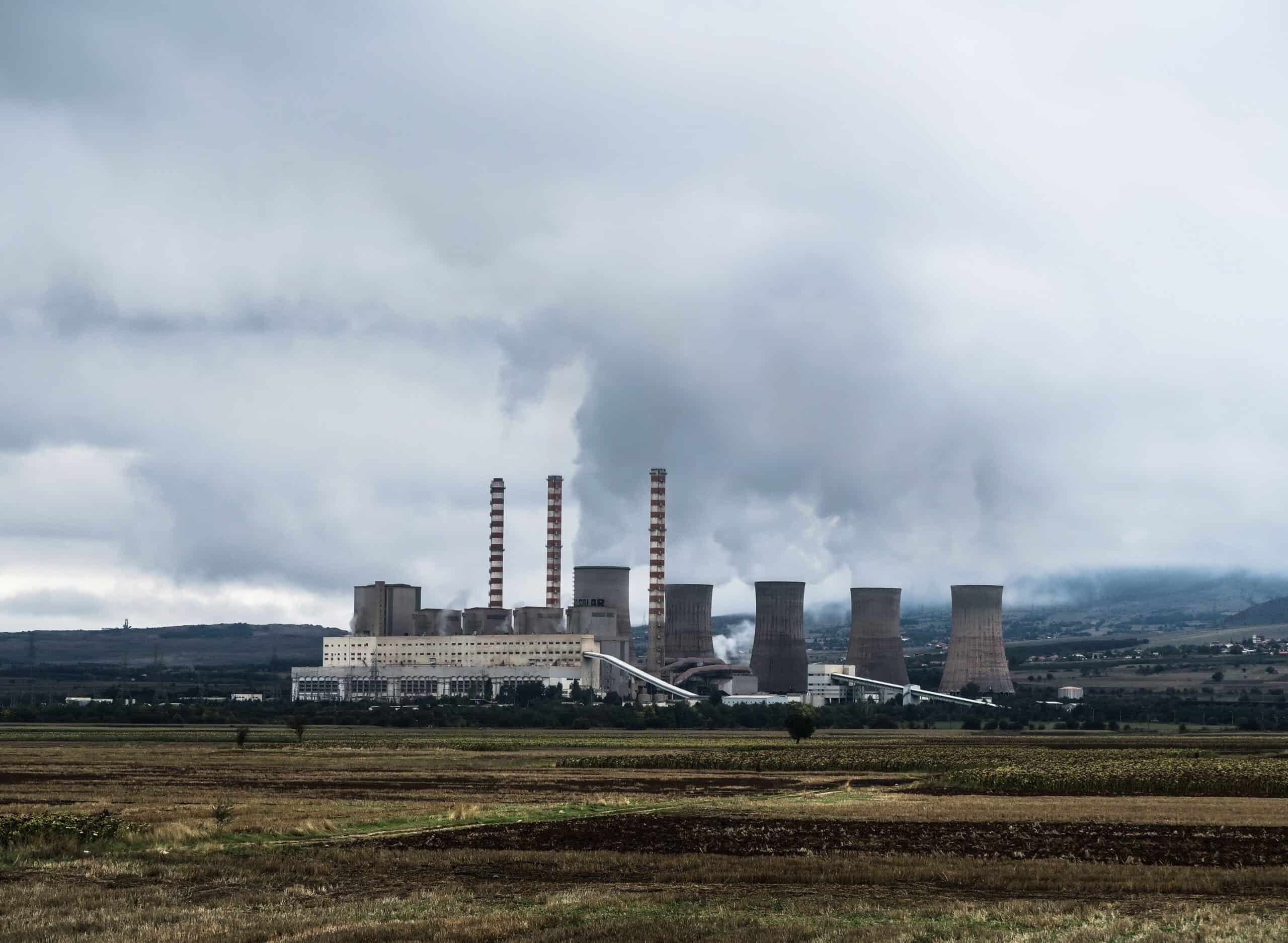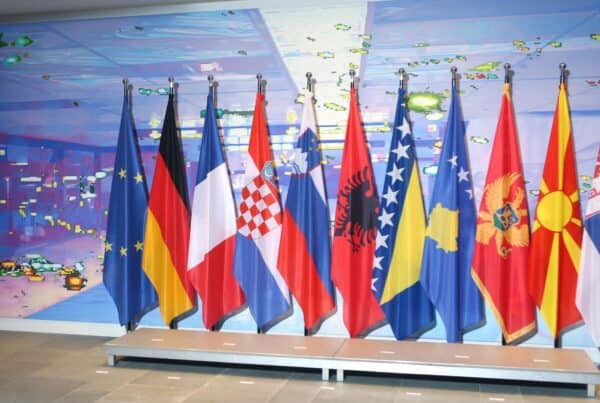You can find part 1 here.
Introduction
In this second part regarding environmental concerns in the Western Balkans, we will briefly analyse the general public perception of this issue. Particularly, we will analyse and showcase 2023 data from the Balkan Public Barometer.
The Balkan Barometer is an annual survey of public opinion and business confidence in the six Western Balkan countries commissioned by the Regional Cooperation Council, through 120 questions posed to around 6,000 citizens and 110 questions to 1,200 entrepreneurs.
Data Analysis
Public opinion in the Western Balkans considers climate change a very serious/somewhat serious problem. As shown in Figure 1, over 60% of the regional population agrees with this perception. Since 2016 there has been a general increase in awareness of the problem, particularly in Albania and North Macedonia, which show the highest percentages of people perceiving climate change as a problem.
Figure 1
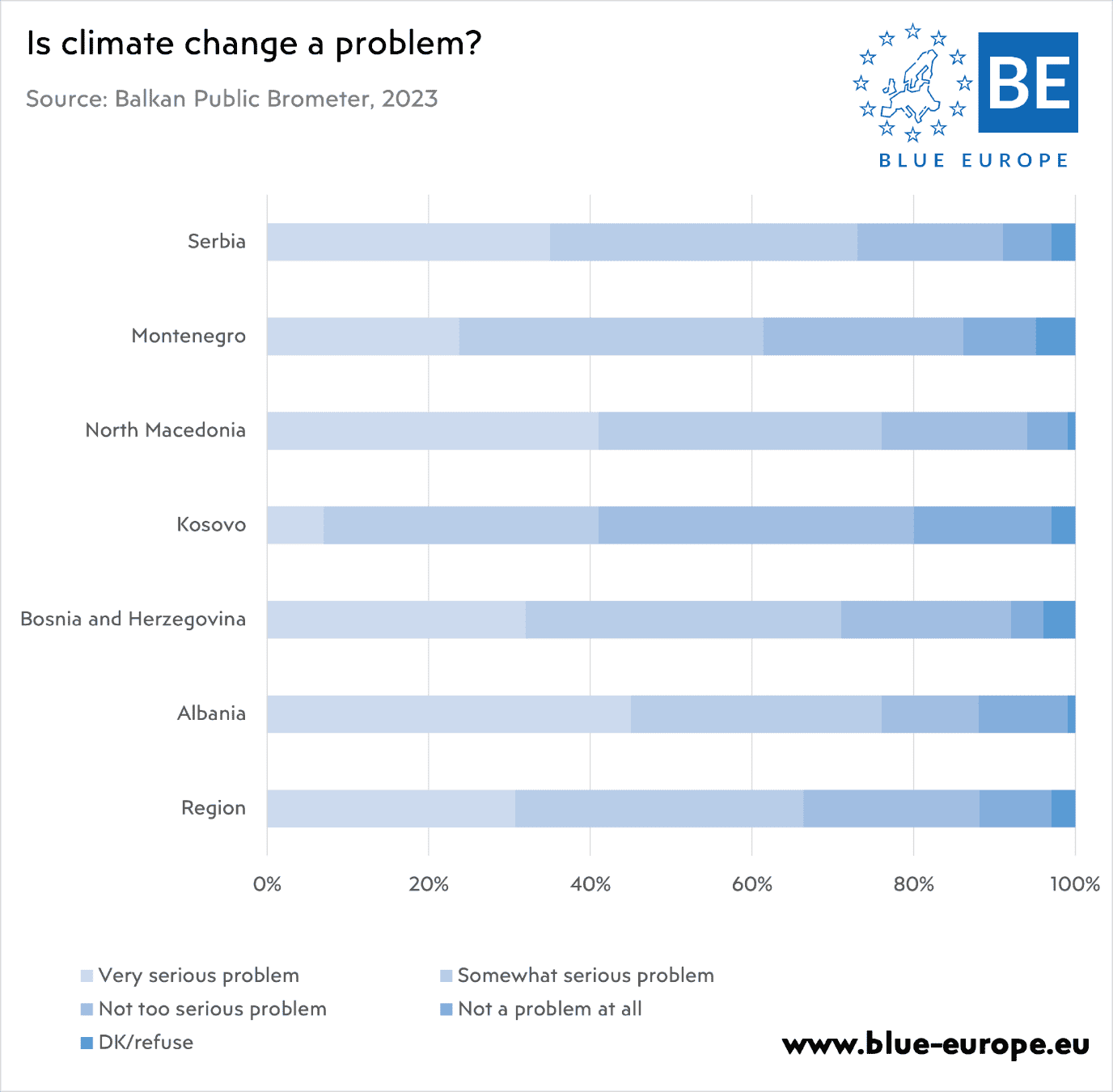
When asked about how seriously climate change is perceived in terms of own/family’s health concerns, the public opinion seems to be generally less affected. However, it is important to note that percentages shown in Figure 2 are somewhat correlated with those of Figure 1. In fact, Albania, North Macedonia and Serbia also present the highest proportions of population concerned about climate change in general (“Very serious problem” + “Somewhat serious problem”), respectively 65%, 57% and 51%.
As we saw in Part 1, these three countries are also acknowledged to be the most developed in terms of monitoring and investigation of pollutant emissions.[1] This can be seen as a positive correlation between public awareness of climate-related issues and institutional efforts to offer more quantitative and qualitative data.
Figure 2
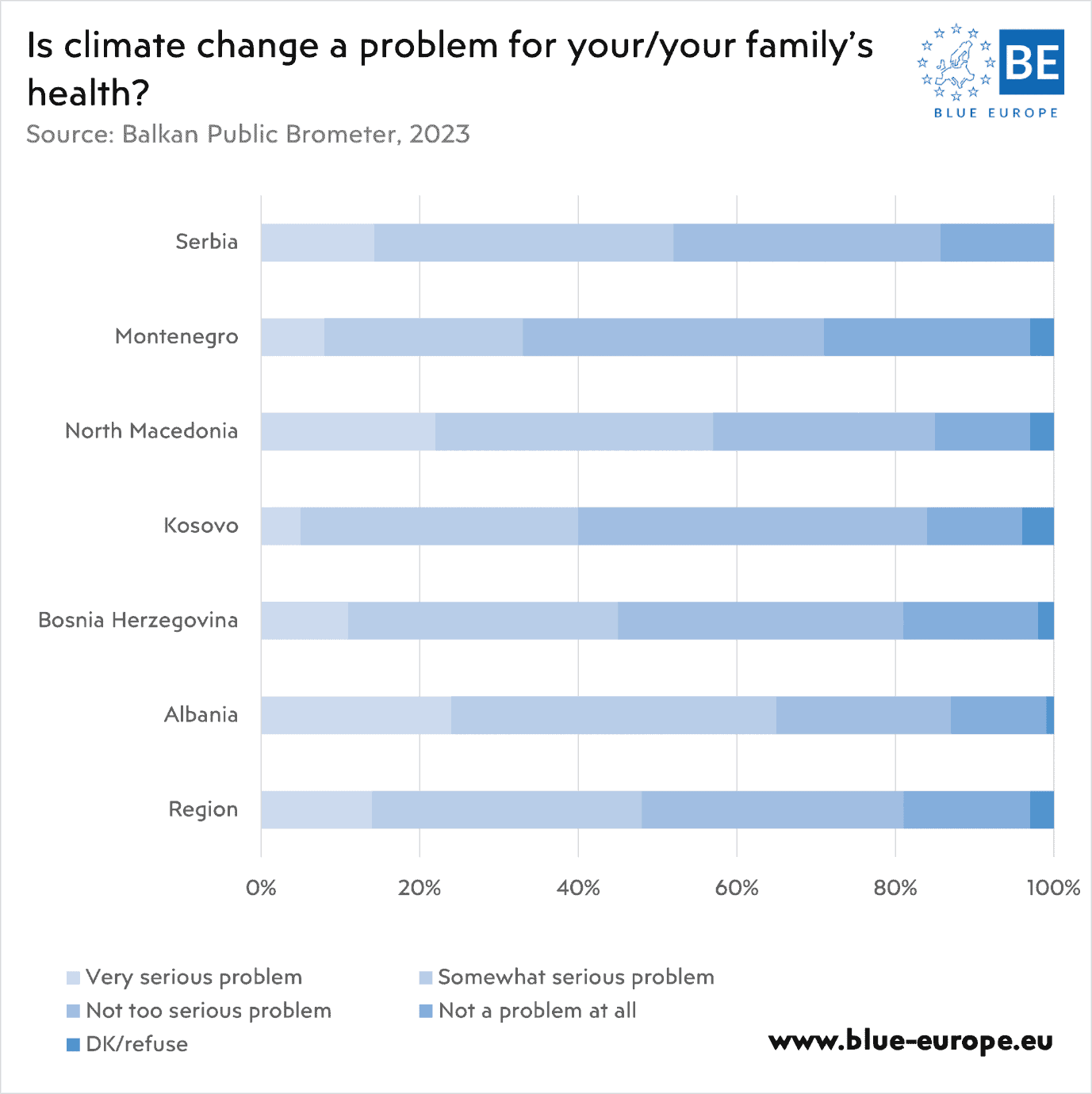
When it comes to the type of environmental concern, answers tend to be diverse between countries as showcased in Figure 3. Nevertheless, in most of the Western Balkans, the three main perceived issues are – from the most concerning one – air pollution, water pollution and soil pollution. The only exception is Kosovo, where soil pollution and water pollution are the most pressing environmental problems.
Notably, Serbia, Montenegro and North Macedonia present the highest percentages of public concern for air pollution. This shows a direct correlation with the data examined in Part 1. In fact, the three countries experience the highest PM 2.5 emissions.[2] Additionally, considering that we have seen above that there is a higher environmental awareness where institutions strive to inform their citizens, it is possible that Bosnia and Herzegovina does not follow this correlation due to a lack of adequate monitoring.
Extreme temperatures are also relevant particularly in Kosovo and North Macedonia, where concerning heatwaves were recorded in July 2023.[3] Authorities in the two countries went as far as to call out warnings and emergency alerts to advise the population.
Figure 3
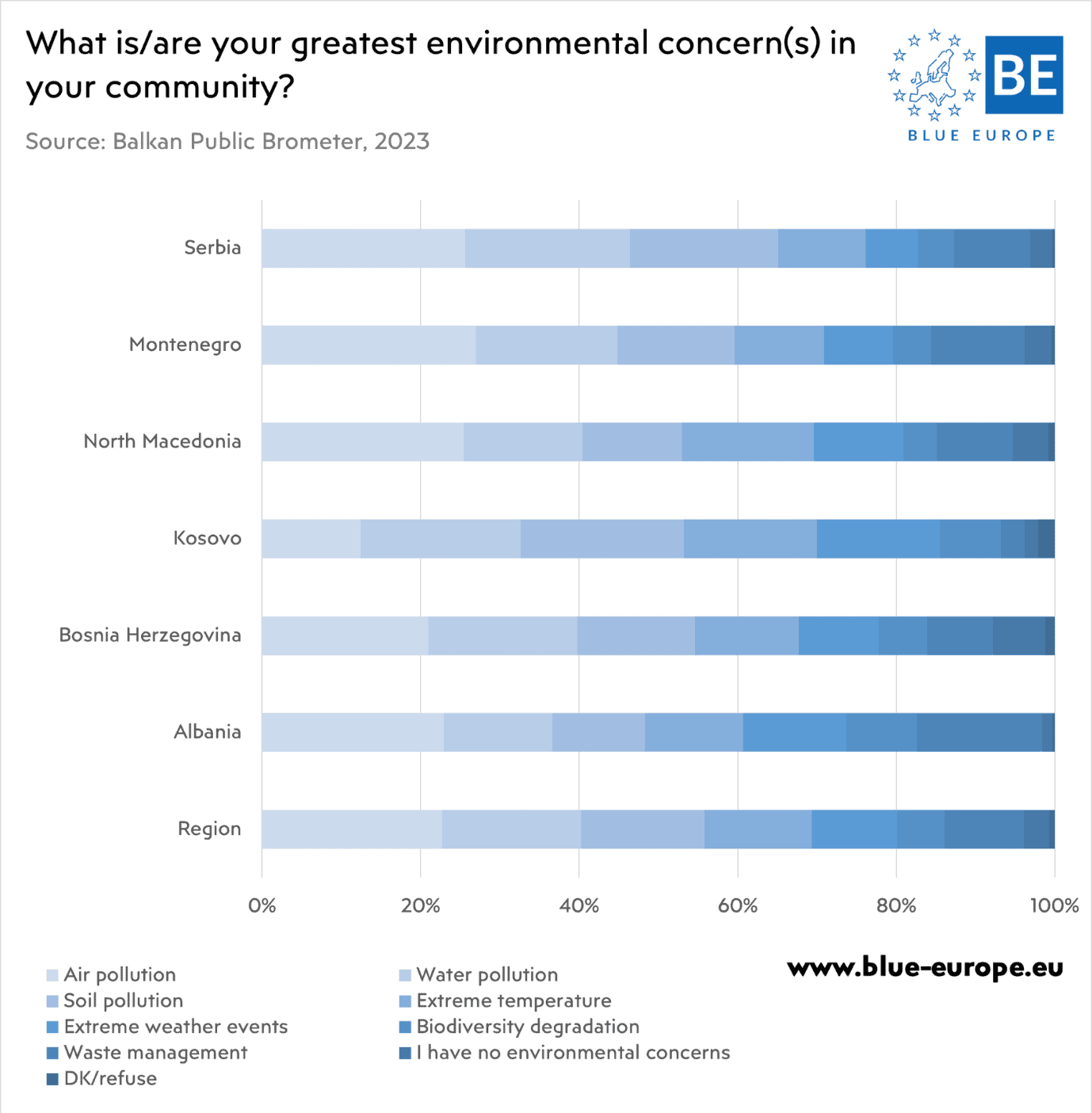
With regards to energy, public concerns shown in Figure 4 are similar across the entire region. The most general pressing issue is related to rising energy costs, with the exception of Kosovo, where energy security and availability is still the greatest issue for the population.
Figure 4
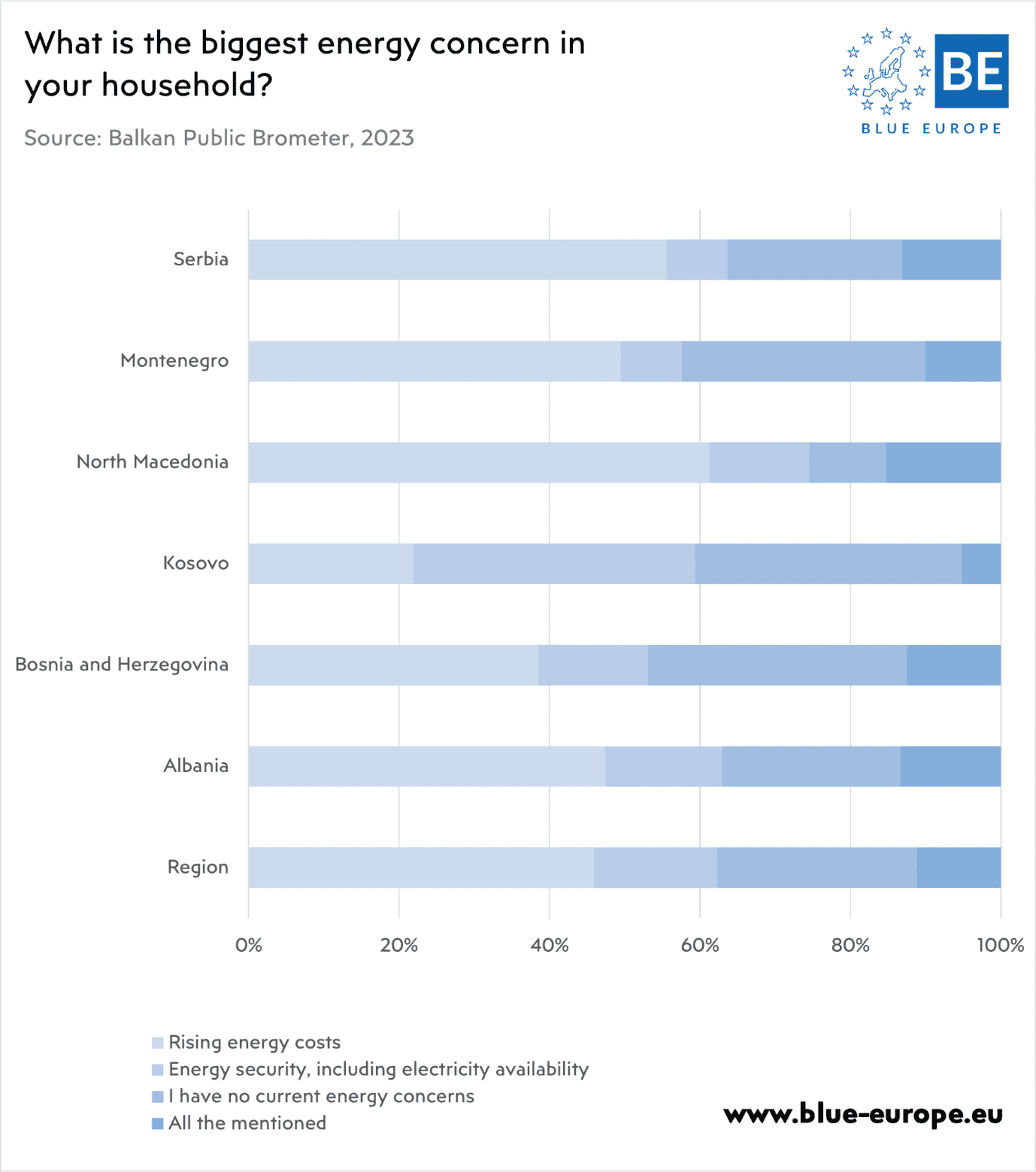
Finally, for what concerns perceived economical and systemic barriers to achieve the green transition: lack of awareness, lack of finance and lack of will power are the three most common perceptions, accounting for a comprehensive 80% of answers across the region.
The first two variables, awareness and will power, can be influenced by informative campaigns targeted both at the general public and the policymakers. The perceived lack of finance, instead, should be addressed by both promoting already existing financial initiatives and by allocating more resources where needed the most, prioritising areas that would benefit the most from new economic support.
Figure 5
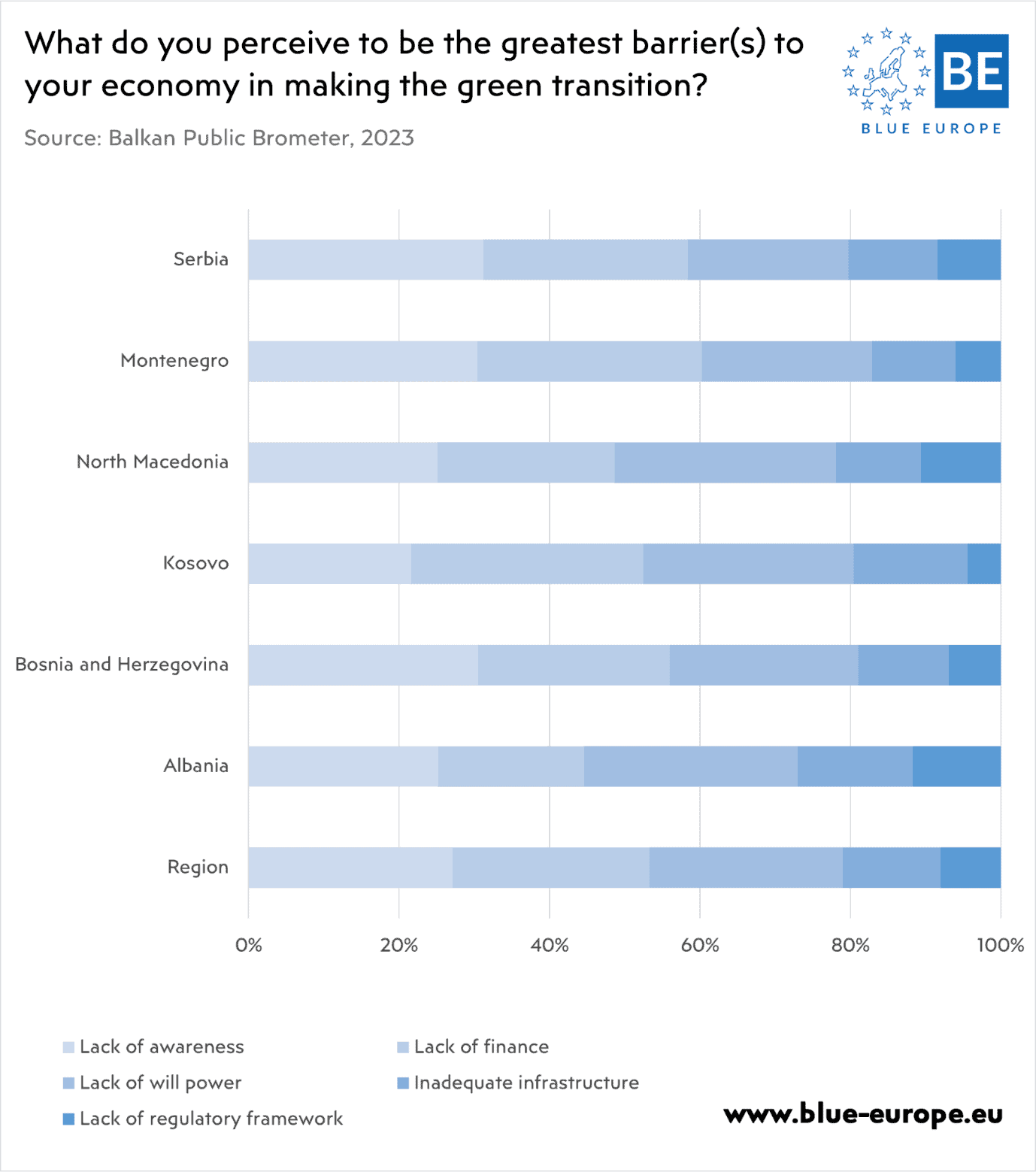
In the next part we will analyse countermeasures put in place by the European Union to address environmental issues in the Western Balkans, particularly in an economical and regulatory way.
Part 3 can be found here.


